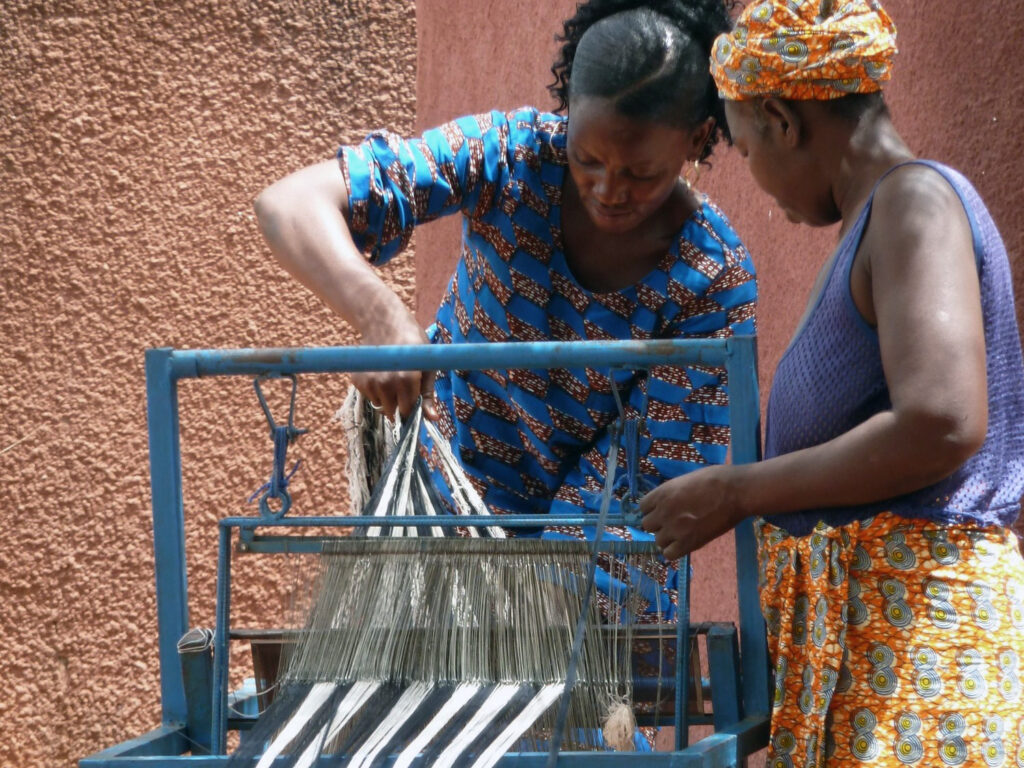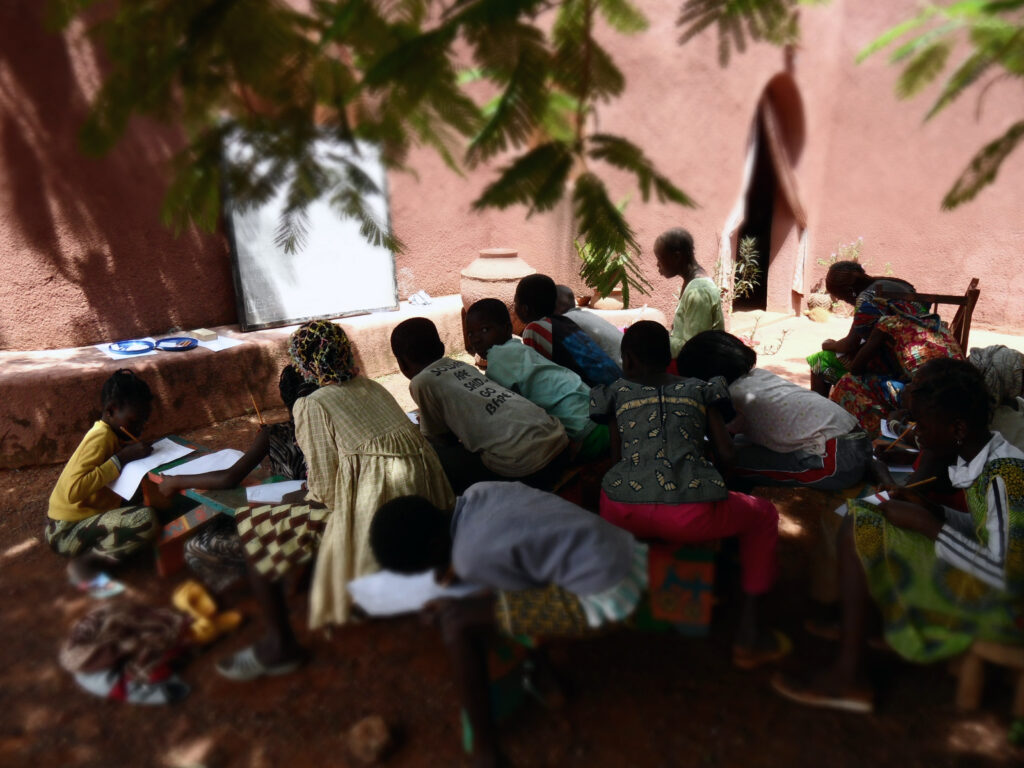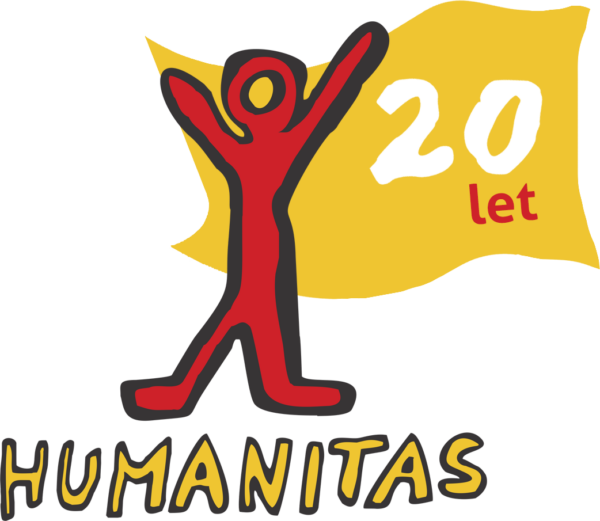In collaboration with our Slovenian partner, Sklad 05 (Fund 05), the TGE team interviewed the members of Humanitas, a Slovenian TGE beneficiary and non-governmental, non-profit and independent organisation working in the field of global learning and support programmes for children and local communities.
TGE team: Could you introduce Humanitas in a few words?
Humanitas – Centre for Global Learning and Cooperation is a non-governmental, non-profit and independent organisation founded in 2000 in Slovenia. The main goal of Humanitas is to raise awareness of global interdependence and the role we as individuals play in the world by educating and informing about global challenges. By promoting solidarity, responsibility, justice, and respect for human rights, we aim to encourage people, especially young people, to become actively involved in both formal and informal contexts, and participate in shaping a society based on social and environmental justice. Our core work is divided in two fields: global learning and sponsorship programme supporting children’s education.
Global Learning: We are the leading organisation in the field of global learning in Slovenia and we mainly work with teachers and other educators to bring global learning into formal and non-formal educational settings. Global learning or global education is an approach to education that aims to make the participants more aware of their interconnectedness with the environment and with other people. The goal of global learning is to encourage and develop ideas for responsible and active global citizenship. The programme is mainly supported through EU and national projects.
Sponsorship programme: With this programme, we support children in their educational path in Ghana, Burkina Faso, Kenya and Slovenia, and in African countries, we also implement projects that empower local communities. The programme is supported exclusively by individual donations from Slovenian individuals. We are also one of the founders of the one and only Fair trade shop in Slovenia 3MUHE.
TGE Team: How was your organization born and what kind of activities does it carry out?
The organisation was born in the year 2000 and it started with the sponsorship programme in support of children in their educational path in Burkina Faso. The project soon spread to Ghana, Kenya and Slovenia where we – in cooperation with local partners – still work today. With this programme we support children’s schooling (school fees, uniforms, books etc.) but also community projects through which a larger community of children benefits (like libraries, health clinic etc.). In 2004, the organisation also started with educational and awareness-raising activities in Slovenia – the field that later became known as global learning. In this field, we organise trainings for teachers and other educators (occasionally pupils), we develop educational material on various global topics and we organise events (national conferences on global learning, round tables etc.).
TGE Team: How has your organization evolved over the years and what are the main goals you have achieved?
Throughout the years, we have become the leading organisation in the field of global learning in Slovenia. We cooperate with national and international partners and we have implemented over 50 national and international, small and medium scale projects. Since 2015, we also organise national conference on global learning – one of the main event on global learning in the country. Almost 100 teachers, educators, NGOs and ministry representatives attend the event. Since 2017, we also run a Club of Global Education Teachers for which we received an award in 2018 – a GENE (Global Education Network in Europe) award for the most innovative practices of global learning in Europe.
The sponsorship programme has evolved significantly through the years. While the programme started with only few children in Burkina Faso, it has later grown to four countries with more than 500 children included yearly (after 2015 the programme however started to decrease due to dropout of sponsors, the trend that is unfortunately still ongoing). Through the programme we have also supported the construction and running of 3 libraries (2 in Ghana and 1 in Burkina Faso), we also support running of a health clinic in the south of Ghana and environmental project Green Village ran by our local partner near Ghanaian capital near Accra. In Burkina Faso we have also implemented several projects (with the support of small-scale national and international funds) for the economic empowerment of women. With this projects we trained more than 30 women in weaving, some of them joined into a cooperative through which they currently work.
TGE Team: Are there any projects in Europe that have inspired you?
We were really inspired by the German project Children’s Cultural Caravan through which youth groups performing music, dance, theatre and circus from countries in Africa, Asia and Latin America have been coming to Germany and other EU countries. During tours, these groups present their artistic productions in schools, youth and cultural centres and at festivals. They also give workshops in which they teach artistic methods. In their productions, the young artists address their culture as well as personal experiences and problems that determine life at their place of residence. The productions are thus usually thematically related to the sustainable development goals. In their projects, the young people gain new perspectives and self-confidence through their artistic work in order to shape their own future. We were able to include part of this Caravan into the project Coolpeer4Change and we were able to bring groups from El Salvador and Bolivia also to Slovenia.
TGE Team: Could you give us some examples of programs or actions you have recently led or implemented? Where are they taking place (in Europe, abroad)?
In the last 20 years, we ran over 50 projects, taking place in Slovenia, EU and Ghana and Burkina Faso so it is difficult to choose which one to mention. We mention two here:
In 2020, we finished a project that took place in Slovenia through which we developed and implemented a theatre play Through the Refugee’s Eyes, which emerged in response to the inhumane asylum policy of “fortress Europe”, and the often-unlawful treatment of people fleeing war, persecution or poverty, in Balkan Route partner countries. The theatre was a tool for confronting hatred and intolerance, and as it was co-created with people with real-life experience of being refugees, it also enabled them to process their own traumas. The project was mentioned as one of the most innovative educational practices in the publication Global Education Innovation Award Brochure 2017 of the European Global Learning Network GENE
In 2021, we also implemented a project in Burkina Faso that was very successful titled Fabric of the future. The aim of the project, which joined two local organisations, was to set-up a system of ecological local fabric production: from weaving to colouring. Through the project, we promoted a sustainable Burkinabe production chain by adding value to local artisanal textile and promoting inclusion of women into the labour market.

TGE Team: What are the challenges you face? Do you think having an online giving TGE page will help you overcome some of your current challenges?
One of the challenges we face is the increasing dropout of sponsors from our sponsorship programme. We tried to turn to companies but we can see that they are mostly oriented towards donating for the field of sports and health on the national level. We are looking for new possibilities to keep the programme working as the need in partner countries are also increasing due to economic and political situations. We hope that being mentioned on TGE page could support us in our efforts.
TGE Team: Do you have a good practice that you would like to share with our network?
Our Global Education Teachers Club is for sure one of good and innovative practices which has proved to be very successful over the years. We now are running a project through which this initiative will spread to four other EU countries. This club enables teachers to exchanges their ideas, challenges and practices on bringing global education into the classrooms.
We also believe that our sponsorship programme is a good practice. While it is true that the programme is currently in decline, we believe we were really able to do so much with the support from Slovenian sponsors and in cooperation with our local partners. Moreover, we put great emphasis on the ethical implementation of the projects in the countries as well as promotion of the programme in Slovenia, where we follow ethical guidelines on images and messages used. We believe it is not only important what you promote but also how.
TGE Team: What are the next steps for your organization? Your projects for the future?
We plan to strengthen our work in the field of global learning – our aim is to increase the number of teachers included in the Global Education Teachers Club and the number of schools we cooperate with in this field, especially from smaller more rural areas. We would like to further strengthen our position as the global learning organisation in the country.
In the field of sponsorship, we aim to increase the number of donations to be able to support more children; we also plan to strengthen development of community projects – particularly equipping library with new books and educational material, develop rabbitry and poultry small farms in Ghana as self-sustainable economic activities and continue our support for educational clinic.
TGE Team: How do you see philanthropy developing in the coming years?
We believe that in Slovenia philanthropy is in decline, especially for international projects such as the one we are having in Africa. When we started the programme 22 years ago, there was a lot of enthusiasm from the people who believed that such projects are important and were willing to support them. Furthermore, the economic situation in the country was different. The financial insecurity and worsening economic situation in Slovenia is affecting people’s lives and decreasing their financial possibilities to donate. From our experience, for example, we can see that most of the people who dropped out from our sponsorship programme did so because they lack means to donate. Due to the economic and political situation, we can also notice that companies are decreasing their funds for donations while also preferring to donate for national projects either in the field of sports or health. We believe this trend will continue with the current political and economic climate.

